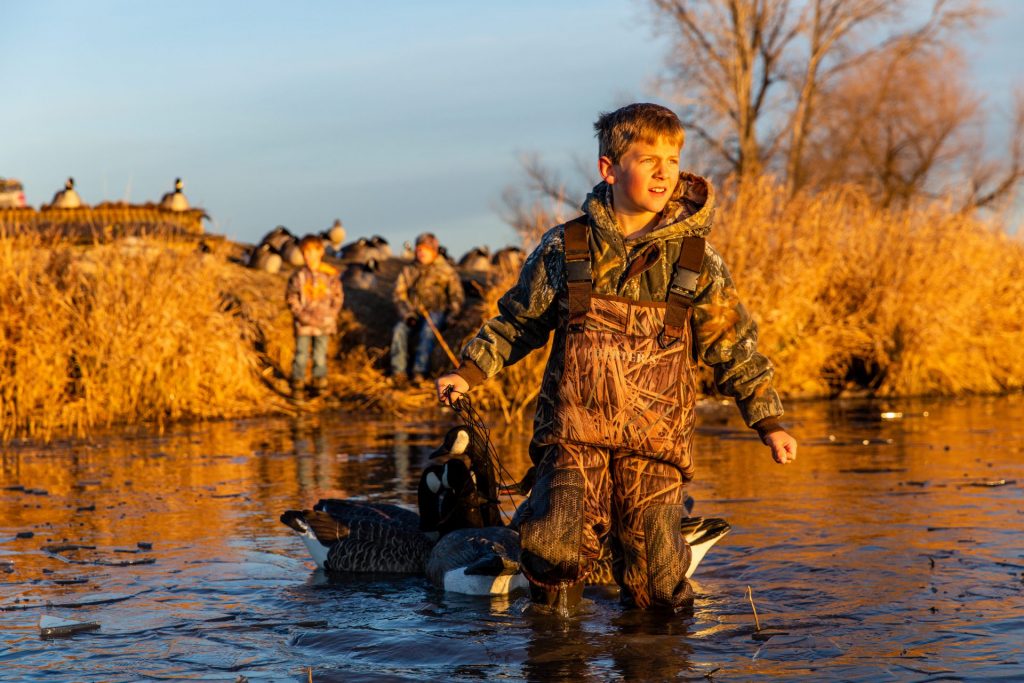
By Jeff Kurrus
Henry Matulka of Gretna went on his first hunting trip when he was 5 years old. Without a driver’s license to operate a vehicle, or his own money to purchase gear, he was reliant upon someone taking him. That person was his dad, Tim.
With BB gun in hand, Henry continued to accompany his dad on dove, waterfowl, deer, and turkey hunting trips, waiting for the day he could pull the trigger on something besides his Red Ryder lever action. That day came three years later when he killed his first tom turkey with his dad beside him, but Henry already knew that success afield is not measured in the amount harvested.
“It’s fun,” he said with a shrug of the shoulders. “It’s never been about shooting stuff.”
Tim agrees, which is why he involves his son in every part of the hunt. “The preparation and strategy is the fun stuff,” Tim said, his excitement reminiscent of Henry’s. “Anytime we start getting ready for a hunt, I feel like a kid myself.”
From practicing with their duck and goose calls to cleaning guns, Tim takes Henry through the entire process. Then Henry goes even further.
“He’s always watching YouTube videos,” Tim said. “I mean, he already knows more about some of this stuff than I do. He’s always trying to learn.”
This is obvious when you’re around Henry. When he’s belting out a hail call, you know he could call in a duck. When he’s honking, you know geese will be listening. But because it’s not always just father and son, Tim reigns him in when they’re around larger groups of more experienced hunters.
Yet that doesn’t mean an 11-year-old can’t act his age. “You can’t expect a young kid to stay still in a blind for hours,” said Tim. “You got to let them move around. And you definitely can’t force them to keep their head down the entire time birds are working above a blind. How are you going to get them excited if they’re not allowed to watch?”
Because Henry has been able to watch, this time of year – like it does for so many hunters – comes with the feeling that the blind is where you’re supposed to be. “I really like to fish,” said Henry, who is on the water all through the summer, “but because the hunting seasons are shorter, and you don’t get to go as much, I just like it better. This time of year I get the feeling that it’s time to shoot some ducks.”
But he’s not emerging from the truck after all the work is done and everyone is climbing into a blind. He’s watching the wind to see where they should set the decoys in relation to the blind, and he’s advising his dad anytime he can about how they can have a more successful hunt.
And Tim will listen. When his son and hunting partner has an idea, is getting cold, or has noticed the food supply has been vanquished, they’ll make an adjustment to their trip. Together.
Tim wants to pass along the same love for hunting as his own father passed onto him growing up near Grand Island. “My time in those Rainwater Basin marshes as a kid are some of my fondest memories,” Tim said. “It’s why I do what I do today.”
Henry’s 11-year-old take is similar. “I just like walking into a marsh and going to hunt.”
All it seems Henry ever needed was someone to take him. Which is exactly what happened.
